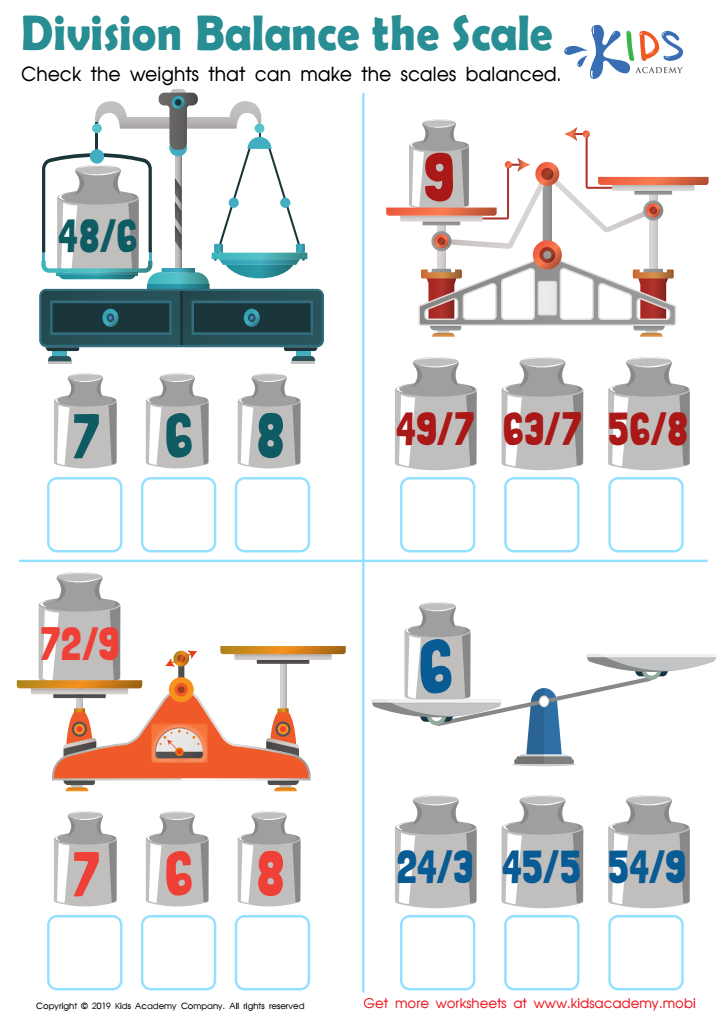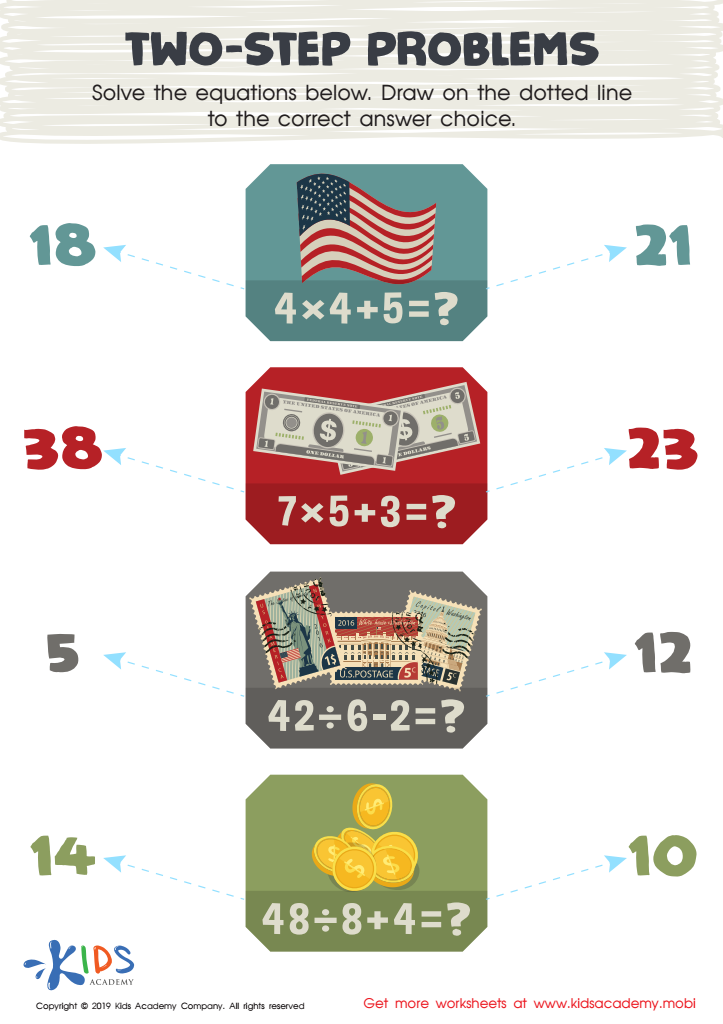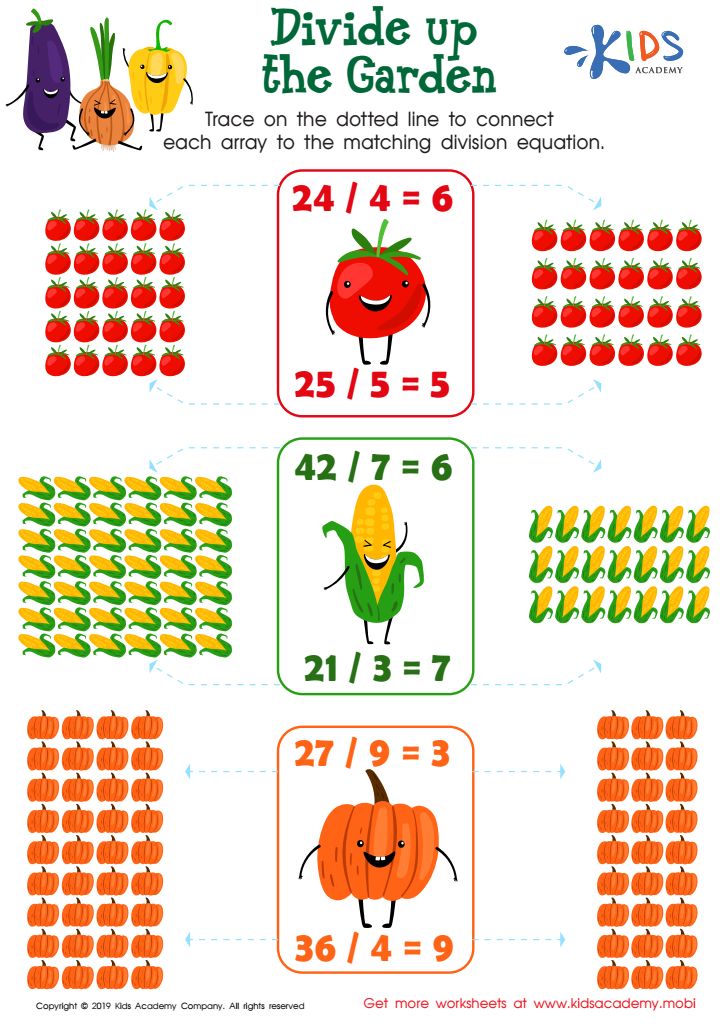Critical Thinking Normal Division Worksheets for Ages 6-9
3 filtered results
-
From - To
Enhance your child's problem-solving abilities with our Critical Thinking Normal Division Worksheets tailored for ages 6-9. These engaging printable worksheets are designed to stimulate young minds while developing essential division skills. Each activity encourages students to analyze, evaluate, and apply their understanding of division in various real-world contexts. Packed with age-appropriate challenges, our worksheets not only make learning math fun but also foster critical thinking and reasoning skills. Perfect for both classroom and home use, these resources can help your child build a solid foundation in mathematics confidently and creatively. Discover the joy of learning through critical thinking today!


Division Balance the Scale Worksheet


Two-Step Problems Worksheet


Divide up the Garden Worksheet
Critical thinking is an essential skill that helps children navigate their world, and its importance cannot be overstated, especially for ages 6-9. During these formative years, children are developing the ability to analyze, evaluate, and synthesize information independently. Parents and teachers should care about nurturing critical thinking skills through activities like Normal Division, which teaches children to draw connections, identify patterns, and solve problems logically.
By fostering these skills, teachers and parents empower children to become decision-makers who can think for themselves, challenge assumptions, and innovate. At ages 6-9, children are particularly receptive to new ideas and learning strategies. Engaging them in critical thinking activities enhances their cognitive abilities and encourages creativity and curiosity. This builds a foundation for lifelong learning and prepares them for future academic challenges.
Moreover, in a rapidly changing world, children equipped with critical thinking skills are better prepared to tackle complex issues and to navigate everyday life. They will learn to question information sources, discern fact from opinion, and move beyond surface-level understanding to appreciate deeper complexities. Encouraging critical thinking in young learners not only nurtures their intellectual growth but also supports their emotional and social development, cultivating responsible and engaged future citizens.
 Assign to My Students
Assign to My Students















